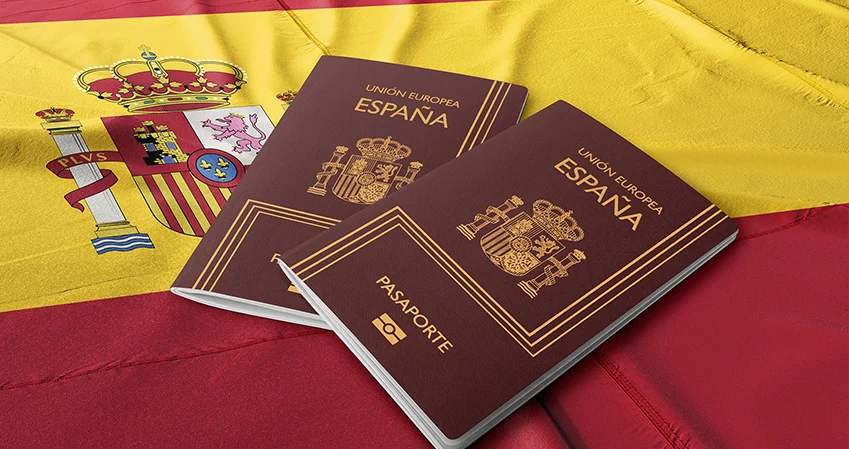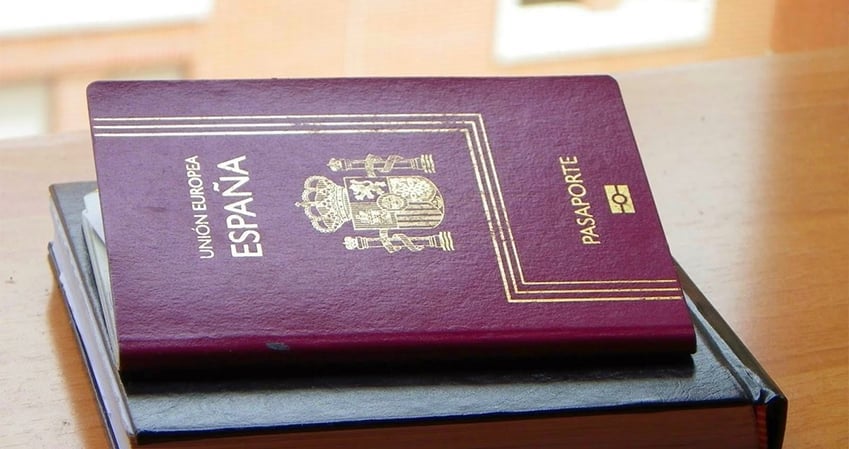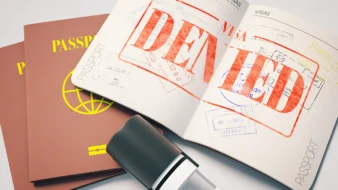How to Obtain a Schengen Visa for Spain Without Being in Your Country
It might seem like traveling to Spain from abroad is an impossible luxury right now. However, there are valid grounds that allow citizens to move freely across many European countries. One of these is the Schengen visa (which comes in different types: multiple-entry, tourist, medical). This document allows entry to the majority of EU countries. A Schengen agreement was made between 29 countries, stating that Schengen visa holders have the right to move freely between these countries. You can stay in a country for a limited time, depending on the type of Schengen visa and applicable laws. Additionally, the document provides extra benefits when traveling abroad, such as no passport control in the Schengen Zone and the ability to visit Cyprus, Bulgaria, and other countries where getting a visa is typically difficult. The classic and proven way to obtain a Schengen visa is through a visa center or consulate in the country of residence. However, there are situations when a person is already abroad and needs to obtain a visa. How can you legally get a Schengen visa for Spain under such circumstances? It is possible, although a bit more complicated.
 There are many ways to get a Schengen visa for Spain. Let’s go through them in detail.
Submitting Documents in Your Country of Citizenship
As mentioned earlier, you can obtain a Schengen visa by traveling for 2-4 weeks to the country where you have citizenship. In our case, this country is Russia. After that, you must apply to the visa center. Visa centers are available in all major cities in Russia: Novosibirsk, Moscow, Saint Petersburg, Kazan, etc. The applicant must go to the office with the required set of documents and cash to pay the necessary fees. A Schengen visa for a Russian citizen is usually issued for 90 days. Documents can be submitted no earlier than 6 months before the planned trip. The processing time can take up to 45 working days, although often a response comes in 2-3 weeks. The advantage of this method is a high chance of approval. In 2024, the rejection rate for Russian citizens is under 10%. On the other hand, there is a downside: you must be present in Russia for several weeks, which is not always possible.
Submitting Documents from a Country with Residence Permit
There are many ways to get a Schengen visa for Spain. Let’s go through them in detail.
Submitting Documents in Your Country of Citizenship
As mentioned earlier, you can obtain a Schengen visa by traveling for 2-4 weeks to the country where you have citizenship. In our case, this country is Russia. After that, you must apply to the visa center. Visa centers are available in all major cities in Russia: Novosibirsk, Moscow, Saint Petersburg, Kazan, etc. The applicant must go to the office with the required set of documents and cash to pay the necessary fees. A Schengen visa for a Russian citizen is usually issued for 90 days. Documents can be submitted no earlier than 6 months before the planned trip. The processing time can take up to 45 working days, although often a response comes in 2-3 weeks. The advantage of this method is a high chance of approval. In 2024, the rejection rate for Russian citizens is under 10%. On the other hand, there is a downside: you must be present in Russia for several weeks, which is not always possible.
Submitting Documents from a Country with Residence Permit
 You can obtain a Schengen visa for Spain even when outside of Russia. A crucial factor for the consulate to issue a visa is the presence of a residence permit (RP) in the country where you submit the documents. In Armenia or Uzbekistan, Russian citizens can submit documents for a visa without having a residence permit, as these countries belong to a unified consular district. The process of obtaining a Schengen visa in another country is similar to the one in Russia. First, you need to schedule an appointment at the consular center, and then prepare documents according to the established requirements. It is important to clearly explain the reason for obtaining a Schengen visa, your travel dates, and itinerary. The likelihood of obtaining a Schengen visa depends on the country where you plan to submit the documents. For example, the chances of getting a visa in Turkey or the UAE are low, while in Serbia or Cyprus, the chances are much higher, although there are long queues.
You can obtain a Schengen visa for Spain even when outside of Russia. A crucial factor for the consulate to issue a visa is the presence of a residence permit (RP) in the country where you submit the documents. In Armenia or Uzbekistan, Russian citizens can submit documents for a visa without having a residence permit, as these countries belong to a unified consular district. The process of obtaining a Schengen visa in another country is similar to the one in Russia. First, you need to schedule an appointment at the consular center, and then prepare documents according to the established requirements. It is important to clearly explain the reason for obtaining a Schengen visa, your travel dates, and itinerary. The likelihood of obtaining a Schengen visa depends on the country where you plan to submit the documents. For example, the chances of getting a visa in Turkey or the UAE are low, while in Serbia or Cyprus, the chances are much higher, although there are long queues.
 Although some countries are trying to complicate the visa process and restrict travel within Europe, it is still possible to visit Spain. Choose the option that works best for you. If you have the chance to visit Russia, apply for a Schengen visa there. The most expensive, but foolproof option is obtaining a tourist visa in Armenia or Uzbekistan. Don’t forget the tips mentioned in this article. They will help speed up the process of obtaining a Schengen visa. If you need help from specialists to move to Spain as quickly as possible, contact us. The experts at El Pomogator will answer any of your questions and guide you through every step of obtaining a residence permit.
Although some countries are trying to complicate the visa process and restrict travel within Europe, it is still possible to visit Spain. Choose the option that works best for you. If you have the chance to visit Russia, apply for a Schengen visa there. The most expensive, but foolproof option is obtaining a tourist visa in Armenia or Uzbekistan. Don’t forget the tips mentioned in this article. They will help speed up the process of obtaining a Schengen visa. If you need help from specialists to move to Spain as quickly as possible, contact us. The experts at El Pomogator will answer any of your questions and guide you through every step of obtaining a residence permit.
Go back to the blog
Ways to Obtain a Schengen Visa Outside of Russia
 There are many ways to get a Schengen visa for Spain. Let’s go through them in detail.
Submitting Documents in Your Country of Citizenship
As mentioned earlier, you can obtain a Schengen visa by traveling for 2-4 weeks to the country where you have citizenship. In our case, this country is Russia. After that, you must apply to the visa center. Visa centers are available in all major cities in Russia: Novosibirsk, Moscow, Saint Petersburg, Kazan, etc. The applicant must go to the office with the required set of documents and cash to pay the necessary fees. A Schengen visa for a Russian citizen is usually issued for 90 days. Documents can be submitted no earlier than 6 months before the planned trip. The processing time can take up to 45 working days, although often a response comes in 2-3 weeks. The advantage of this method is a high chance of approval. In 2024, the rejection rate for Russian citizens is under 10%. On the other hand, there is a downside: you must be present in Russia for several weeks, which is not always possible.
Submitting Documents from a Country with Residence Permit
There are many ways to get a Schengen visa for Spain. Let’s go through them in detail.
Submitting Documents in Your Country of Citizenship
As mentioned earlier, you can obtain a Schengen visa by traveling for 2-4 weeks to the country where you have citizenship. In our case, this country is Russia. After that, you must apply to the visa center. Visa centers are available in all major cities in Russia: Novosibirsk, Moscow, Saint Petersburg, Kazan, etc. The applicant must go to the office with the required set of documents and cash to pay the necessary fees. A Schengen visa for a Russian citizen is usually issued for 90 days. Documents can be submitted no earlier than 6 months before the planned trip. The processing time can take up to 45 working days, although often a response comes in 2-3 weeks. The advantage of this method is a high chance of approval. In 2024, the rejection rate for Russian citizens is under 10%. On the other hand, there is a downside: you must be present in Russia for several weeks, which is not always possible.
Submitting Documents from a Country with Residence Permit
 You can obtain a Schengen visa for Spain even when outside of Russia. A crucial factor for the consulate to issue a visa is the presence of a residence permit (RP) in the country where you submit the documents. In Armenia or Uzbekistan, Russian citizens can submit documents for a visa without having a residence permit, as these countries belong to a unified consular district. The process of obtaining a Schengen visa in another country is similar to the one in Russia. First, you need to schedule an appointment at the consular center, and then prepare documents according to the established requirements. It is important to clearly explain the reason for obtaining a Schengen visa, your travel dates, and itinerary. The likelihood of obtaining a Schengen visa depends on the country where you plan to submit the documents. For example, the chances of getting a visa in Turkey or the UAE are low, while in Serbia or Cyprus, the chances are much higher, although there are long queues.
You can obtain a Schengen visa for Spain even when outside of Russia. A crucial factor for the consulate to issue a visa is the presence of a residence permit (RP) in the country where you submit the documents. In Armenia or Uzbekistan, Russian citizens can submit documents for a visa without having a residence permit, as these countries belong to a unified consular district. The process of obtaining a Schengen visa in another country is similar to the one in Russia. First, you need to schedule an appointment at the consular center, and then prepare documents according to the established requirements. It is important to clearly explain the reason for obtaining a Schengen visa, your travel dates, and itinerary. The likelihood of obtaining a Schengen visa depends on the country where you plan to submit the documents. For example, the chances of getting a visa in Turkey or the UAE are low, while in Serbia or Cyprus, the chances are much higher, although there are long queues.
Applying for a Spanish Schengen Visa from Armenia
Can you obtain a Schengen visa without being in Russia, with a Russian passport and no residence permit in another country? There is a loophole for those who have left Russia – a trip to Armenia. In this country, any holder of a Russian passport can apply for a Spanish Schengen visa. Application Process- Register at the BLS visa center. It is recommended to do this at least a couple of months before the trip, as registration opens once a month, and appointments fill up quickly. Check frequently, as someone might cancel their appointment, and additional slots may become available.
- Gather the necessary documents. These are accepted in three languages: Russian, English, or Spanish. They are similar to the ones needed in Russia:
- Internal passport and copies of all pages;
- International passport and copies of all pages;
- Tourist insurance;
- Employment certificate (showing salary and position);
- Armenian social card;
- Confirmed hotel booking for your stay in Spain;
- Bank statement;
- Two color photographs (3.5 x 4.5 cm);
- Application form (can be filled out independently or at the BLS visa center);
- Round-trip tickets to Spain.
Possible Problems and Solutions
Sometimes, it is not easy to obtain a Schengen visa, even in Russia. The most common problems are:- You can’t submit the application through the BLS website. In this case, you should monitor the website for available slots. Alternatively, you can use express registration.
- The application is rejected due to document issues. Before submitting, carefully review the documents required on the visa center’s website. The most common reason for refusal is the "lack of justification for the purpose and conditions of the intended stay."
Tips and Recommendations
Obtaining a Schengen visa in another country can be challenging, so it’s important to follow expert advice. If you’re called for an interview with the consulate, make sure to prepare thoroughly – justify the reason for your trip in detail. Consider potential questions. Interviews often play a crucial role in visa approval. Additionally, keep the following in mind:- The optimal time to submit documents is 3 months before your trip.
- Prepare copies of the documents in advance. It’s best to check the list of required documents by visiting the website of the consulate or visa center where you plan to apply, as different countries and organizations may have different lists.
- Track your application status through the resource provided by the visa center. Often, people miss notifications asking them to attend an interview.
Conclusion
 Although some countries are trying to complicate the visa process and restrict travel within Europe, it is still possible to visit Spain. Choose the option that works best for you. If you have the chance to visit Russia, apply for a Schengen visa there. The most expensive, but foolproof option is obtaining a tourist visa in Armenia or Uzbekistan. Don’t forget the tips mentioned in this article. They will help speed up the process of obtaining a Schengen visa. If you need help from specialists to move to Spain as quickly as possible, contact us. The experts at El Pomogator will answer any of your questions and guide you through every step of obtaining a residence permit.
Although some countries are trying to complicate the visa process and restrict travel within Europe, it is still possible to visit Spain. Choose the option that works best for you. If you have the chance to visit Russia, apply for a Schengen visa there. The most expensive, but foolproof option is obtaining a tourist visa in Armenia or Uzbekistan. Don’t forget the tips mentioned in this article. They will help speed up the process of obtaining a Schengen visa. If you need help from specialists to move to Spain as quickly as possible, contact us. The experts at El Pomogator will answer any of your questions and guide you through every step of obtaining a residence permit.


 12/05/2025
12/05/2025  Reading time: 6 min
Reading time: 6 min 



